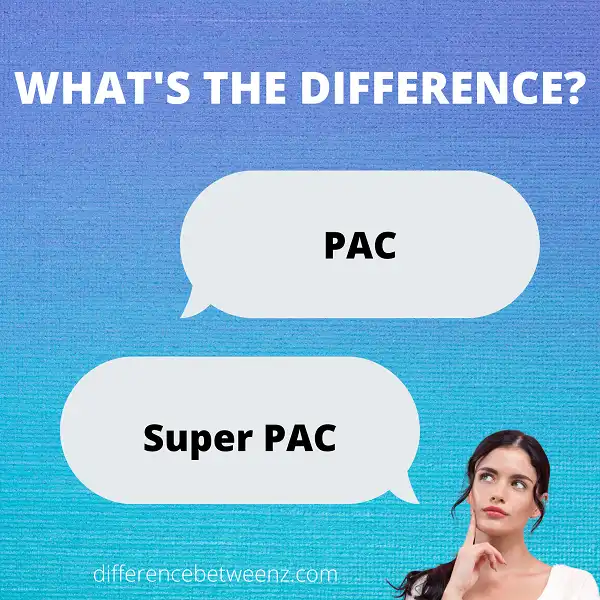Every election cycle, we hear more and more about PACs and Super PACs. But what are they? How do they differ? And why should you care? In this blog post, we’ll break it down for you.
What is PAC?
- PAC is short for Political Action Committee. A PAC is a type of organization that pools campaign contributions from members and then donates those funds to candidates seeking office.
- PACs can also engage in other activities such as voter registration drives and get-out-the-vote campaigns. While PACS are often associated with corporations and special interest groups, they can be formed by just about anyone.
- For example, the AARP PAC is a PAC that represents the interests of seniors, while the Sierra Club PAC focuses on environmental issues. PACs must register with the Federal Election Commission and disclose their activity, but there are no limits on how much money they can raise or spend. This makes PACS a powerful force in American politics.
What is Super PAC?
Super PACs are a relatively new phenomenon in American politics, and they are already having a major impact on the electoral process. Super PACs are independent organizations that can raise and spend unlimited amounts of money to support or oppose political candidates.
- Unlike traditional PACS, which are subject to strict contribution limits, Super PACs can accept donations from corporations, unions, and individuals without limit.
- This has led to a sharp increase in the amount of money being spent on elections, and it has also raised concerns about the role of big money in politics.
- Super PACs are required to disclose their donors, but they are not required to disclose how they spend their money. As a result, Super PACs have become a major source of dark money in American politics.
Super PACs are often criticized for their lack of transparency and for the negative impact that they have on the democratic process. However, they are also seen as a necessary evil by many campaign professionals. In the end, Super PACs are likely here to stay, and their influence on American politics is sure to grow in the years to come.
Difference Between PAC and Super PAC
PAC is an acronym for Political Action Committee. A PAC is a type of organization that pools campaign contributions from individuals and invests them in candidates running for political office. PACs can also engage in other activities to support their favored candidates, such as running ads or organizing get-out-the-vote drives.
Super PACs are a newer type of PAC that can accept unlimited amounts of money from individuals, corporations, and unions. However, Super PACs are not allowed to coordinate directly with candidates or political parties. Because they can accept unlimited amounts of money, Super PACs have become a major force in American politics. They are often used to air negative ads or run other types of attack ads against opponents.
Conclusion
Super PACs are allowed to raise an unlimited amount of money from individuals, unions, and corporations. However, they cannot contribute more than $5,000 to a candidate’s campaign per election cycle. PACs can only receive contributions of up to $5,000 from individuals and must disclose their donors regularly. So what is the difference between a PAC and a Super PAC? A PAC can only collect $5,000 from each donor while a Super PAC can collect an unlimited amount of money from individuals, unions, and corporations. Additionally, Super PACs do not have to disclose their donors as frequently as PACs.


